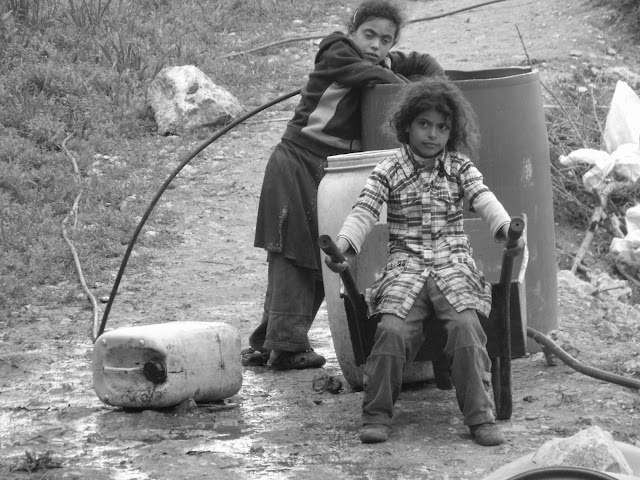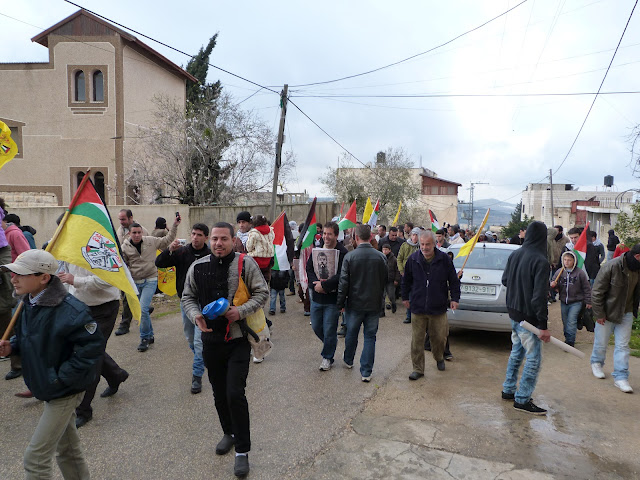Tag: Roadblock
-
The strangulation of a village
by Sylvia 10 March 2012 | International Solidarity Movement, West Bank Sheikh Nasri looks resigned as he describes his home as “the most terrorised village in the country”. With 34,000 uprooted trees in the last two years and some 4,800 dunams of land stolen, the village of Al Jab’a has little to smile about. Eighteen…
-
Kufr Qaddoum: Cut off road and electricity does not deter demonstrations
by Jonas Weber 10 February 2012 | International Solidarity Movement, West Bank Villagers and internationals assembled in Kufr Qaddoum after prayer time to demonstrate against the blocking of their main road to Nablus. The army cut off the electricity in the entire village as collective punishment for the ongoing demonstrations in Kufr Qaddoum. The villagers,…
-
Celebrating heroes and olives: Qaryut begins to dismantle roadblock
by Aaron 5 February 2012 | International Solidarity Movement, West Bank Hundreds of peaceful demonstrators confronted heavily armed Israeli soldiers this Friday, February 3rd, at a new protest in the village of Qaryut, planting nearly one hundred trees and partially demolishing the roadblock that has obstructed access to the highway since the First Intifada. Although…



